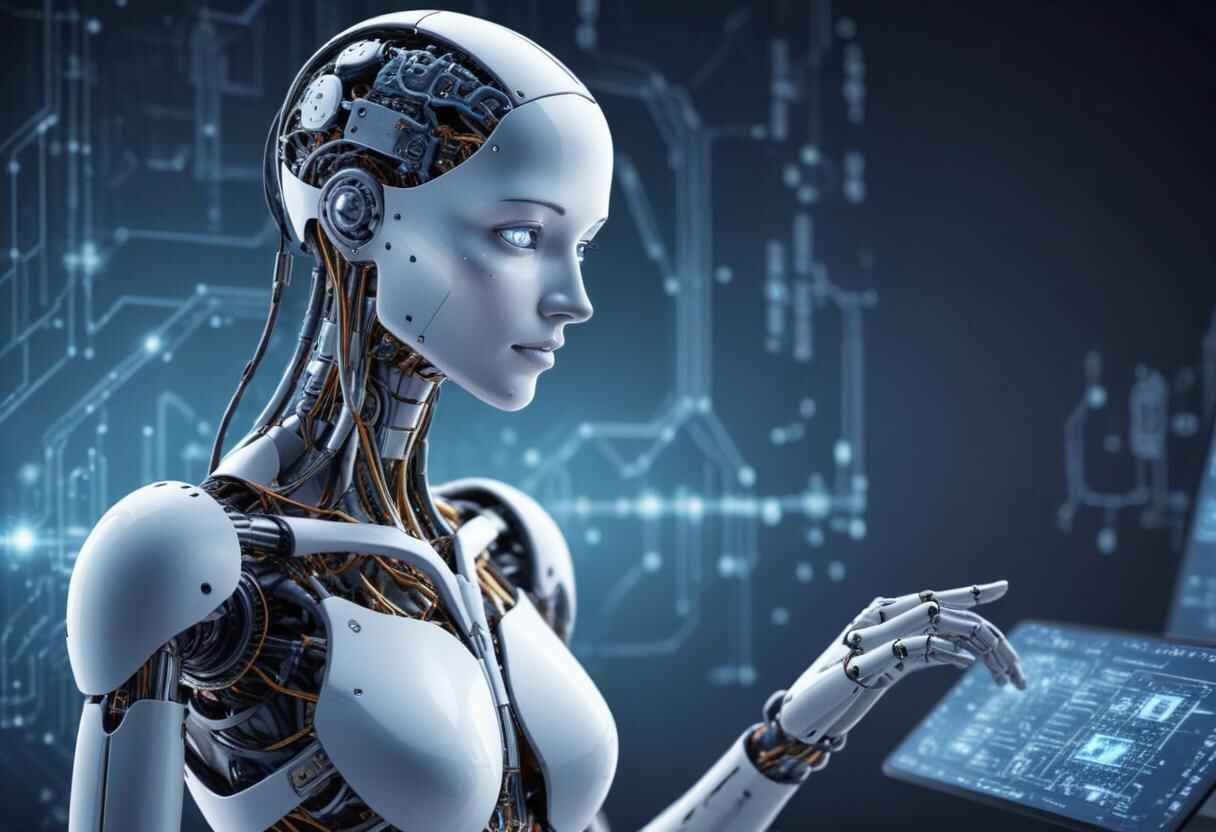Artificial Intelligence (AI) has quickly changed from a future idea to a useful tool used in many areas. One of the biggest changes AI brings is in engineering. Engineers use AI to work more efficiently, solve tough problems, and create new things that seemed impossible before. This article looks at how AI is used in different parts of engineering, showing its effects and possibilities.
Artificial Intelligence in Civil Engineering
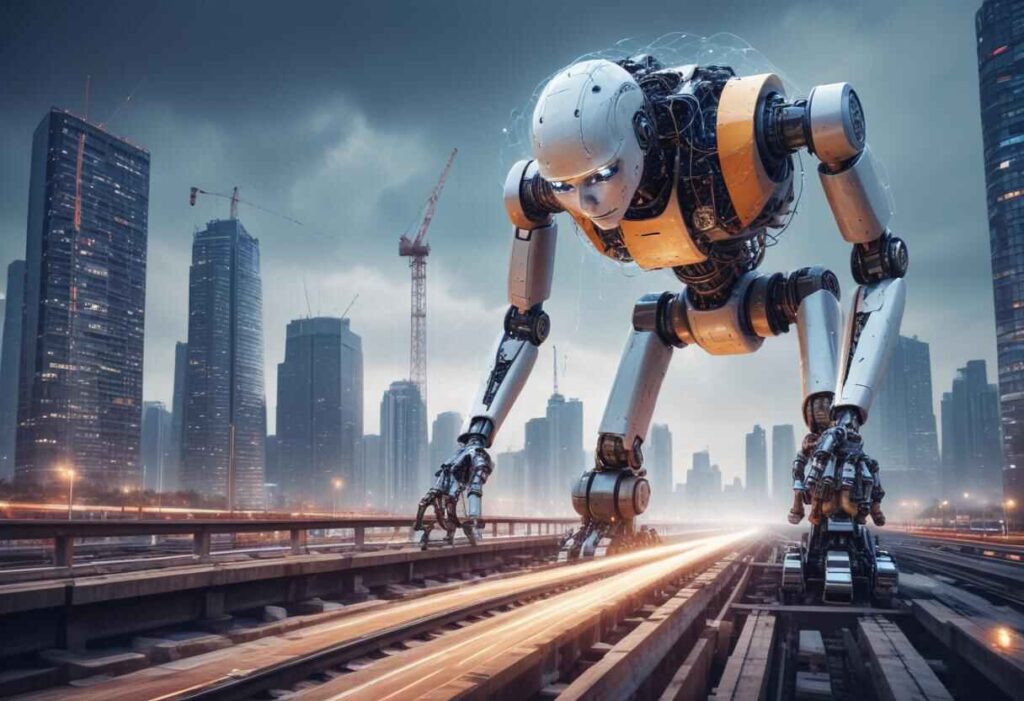
Artificial Intelligence (AI) is changing the way we do things in many areas, including civil engineering. It helps make work faster, more accurate, and easier to plan. Here are some important ways AI is used in civil engineering:
Design and Planning
AI helps civil engineers in the design and planning of construction projects. Machine learning can look at a lot of data to create the better building designs for safety, efficiency, and cost. For example, AI can suggest the better materials and construction methods by studying past projects. This helps reduce waste and keeps the project within budget.
Structural Health Monitoring
Keeping structures like bridges and skyscrapers safe is very important. AI technologies, like predictive analytics and IoT sensors, watch these structures in real time. These systems can find early signs of problems, like cracks or strange vibrations, so repairs can be made quickly to avoid serious issues.
Artificial Intelligence in Mechanical Engineering
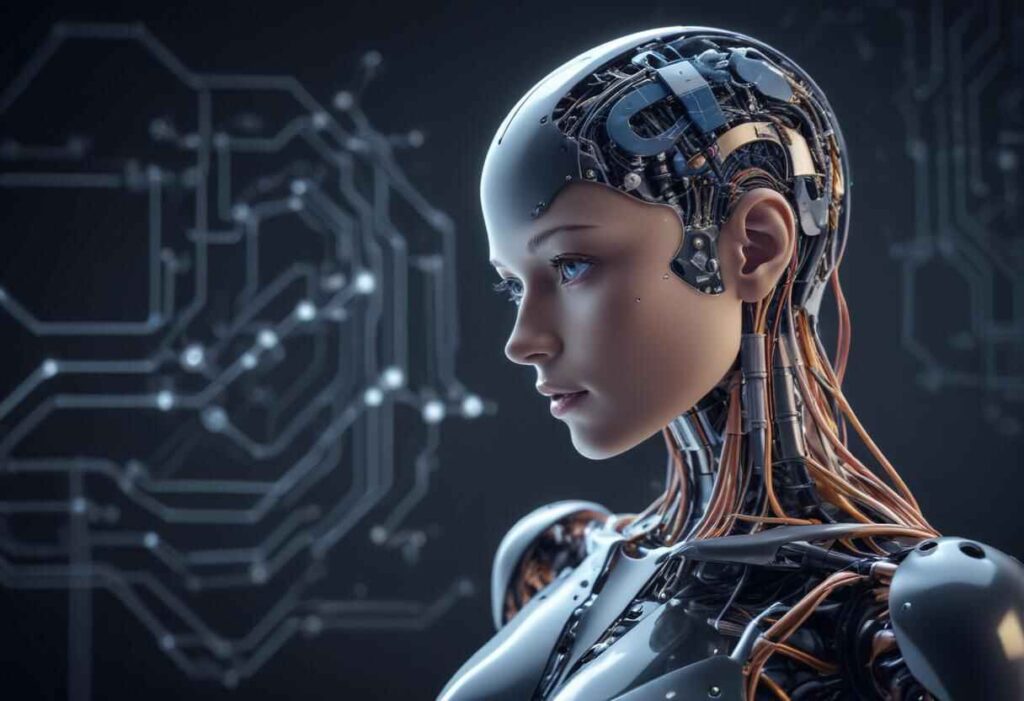
Artificial Intelligence (AI) is greatly improving mechanical engineering by making design, manufacturing, maintenance, and system efficiency better. Here are key ways AI is changing mechanical engineering:
Product Design and Development
In mechanical engineering, AI speeds up product design and development. With generative design, an AI-driven process, engineers can enter design goals into the software, which then explores all possible solutions. It shows the better designs, often ones a human might not think of. This results in innovative products that are optimized for performance, cost, and ease of manufacturing.
Predictive Maintenance
AI is changing how maintenance is done in mechanical engineering. Predictive maintenance uses AI to guess when machines might break down. By looking at data from sensors on the equipment, AI can predict problems and suggest the better time for maintenance. This reduces downtime and maintenance costs, making sure machines run smoothly and reliably.
Artificial Intelligence in Electrical Engineering
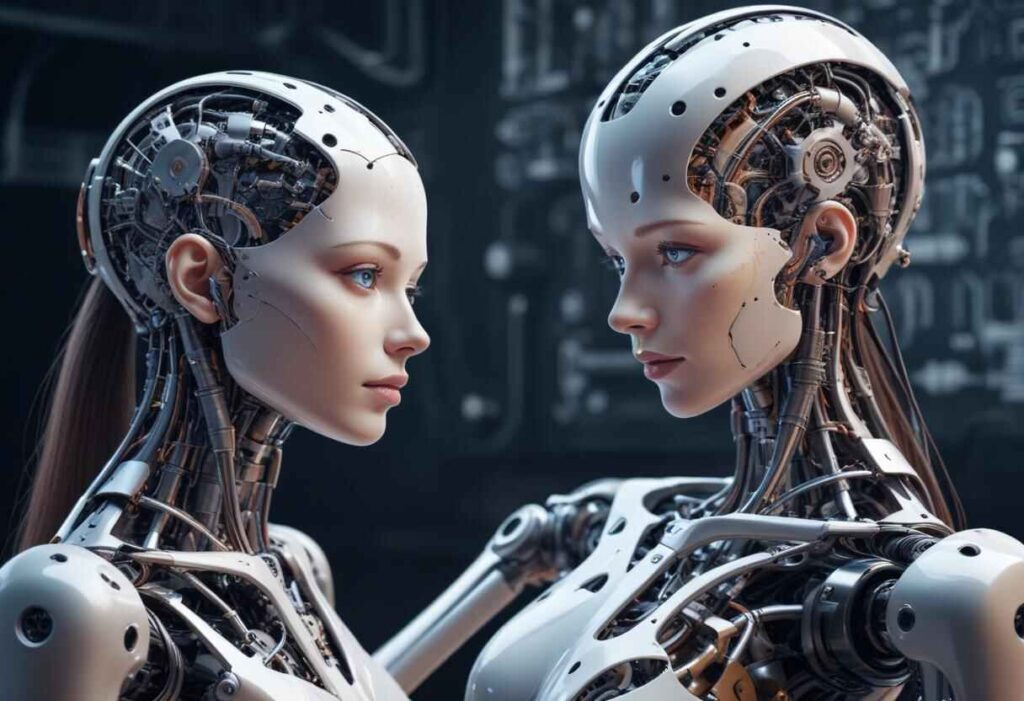
Artificial Intelligence (AI) is changing many fields, and electrical engineering is one of them. AI is improving how we design, run, and take care of electrical systems. Here are some important ways AI is making a big difference:
Circuit Design and Optimization
Making circuits is hard, but AI can help a lot. AI tools can design circuits, make them work better, and spot problems early. This means electronic devices can be better and work more reliably. Also, AI can help make circuits that use less energy, which is important for the environment.
Smart Grids
AI is really important for making and running smart grids. These grids use AI to look at data from different places to make electricity distribution better. AI can guess how much energy people will need, find and fix problems in the grid, and use renewable energy better. This makes electricity supply work better, stay reliable, and be more friendly to the environment.
Artificial Intelligence in Aerospace Engineering
AI is changing how we do things in aerospace engineering. It’s making designs better, keeping things safer and working more smoothly, and helping us do new things with aircraft and spacecraft. Here are some important ways AI is making a big difference in aerospace engineering:
Flight Optimization
In aerospace engineering, AI makes flights better and cheaper. AI looks at things like weather and air traffic to find the better routes, which saves fuel and money. Also, AI helps design planes that fly better through the air, making them safer and more efficient.
Autonomous Systems
AI is leading the way in making planes and spaceships able to do things on their own. They can fly, avoid obstacles, and land without needing humans to control them. In space, AI helps plan missions, look at data from space probes, and move robotic arms on spacecraft.
Artificial Intelligence in Chemical Engineering
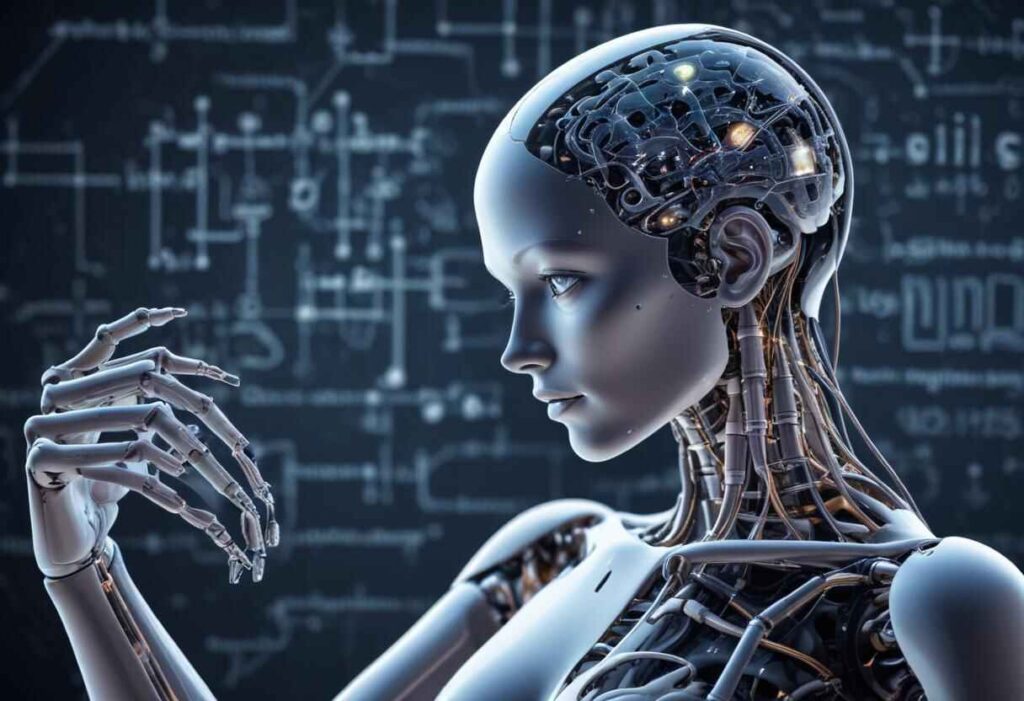
Artificial Intelligence (AI) is becoming more important in chemical engineering. It helps solve tricky problems, makes things work better, and pushes progress in different areas. Here are some important ways AI is used in chemical engineering:
Process Optimization
Chemical engineering deals with complicated tasks that AI can help make better. AI looks at data from processes to find ways to do things more efficiently. This means making more stuff, using less energy, and spending less money to make it. For instance, AI can mix chemicals better to get the reactions we want faster and with less waste.
Safety and Hazard Management
AI is really important for keeping chemical engineering safe. It can guess when bad things might happen, like machines breaking or chemicals spilling, so we can stop them before they do. AI can also watch what’s happening in real-time and notice if something strange is going on. If it does, it can start emergency plans right away to stop accidents from happening.
Applications of Artificial Intelligence in Engineering Fields
Artificial Intelligence (AI) technologies have a broad range of applications in engineering. Here’s a table summarizing some key applications:
| Field of Engineering | AI Application | Description |
| Civil Engineering | Structural Health Monitoring | Use of AI for predictive maintenance and real-time monitoring of infrastructure like bridges, dams, and buildings. |
| Mechanical Engineering | Predictive Maintenance | AI algorithms analyze machine data to predict failures and schedule maintenance before breakdowns occur. |
| Electrical Engineering | Smart Grids | AI manages and optimizes the distribution of electricity, improves energy efficiency, and integrates renewable energy sources. |
| Aerospace Engineering | Autonomous Vehicles | AI is used in the development of autonomous drones and aircraft, enhancing navigation, obstacle avoidance, and mission planning. |
| Chemical Engineering | Process Optimization | AI optimizes chemical processes, improving efficiency, reducing waste, and enhancing safety in chemical manufacturing. |
| Industrial Engineering | Supply Chain Management | AI algorithms optimize supply chain operations, including inventory management, demand forecasting, and logistics. |
| Biomedical Engineering | Medical Imaging | AI enhances the analysis of medical images (e.g., MRI, CT scans) for improved diagnosis and treatment planning. |
| Environmental Engineering | Environmental Monitoring | AI systems monitor environmental conditions, predict pollution levels, and manage natural resources. |
| Robotics | Autonomous Robots | AI enables robots to perform tasks autonomously in various environments, from manufacturing to service industries. |
| Software Engineering | Automated Code Generation | AI tools assist in writing, testing, and debugging code, improving software development efficiency and quality. |
| Materials Engineering | Materials Discovery and Design | AI accelerates the discovery of new materials and optimizes existing ones for better performance and sustainability. |
| Automotive Engineering | Autonomous Driving Systems | AI technologies, including computer vision and machine learning, are essential for the development of self-driving cars. |
| Geotechnical Engineering | Site Analysis and Hazard Prediction | AI models predict geological hazards and analyze soil and rock properties for construction projects. |
| Energy Engineering | Renewable Energy Optimization | AI optimizes the performance and integration of renewable energy sources, such as wind and solar, into the energy grid. |
| Structural Engineering | Design Optimization | AI helps in optimizing structural designs for efficiency, safety, and cost-effectiveness by simulating and analyzing various design scenarios. |
Future of AI in Engineering
The future of AI in engineering seems bright, as it keeps getting better and becoming a bigger part of how we do things in engineering. AI is good at handling big sets of data, learning from them, and making its own decisions, which will help us come up with new ideas and work more efficiently. Engineers will use AI more and more to solve hard problems, make things more sustainable, and push the limits of what we can do.
In summary, AI is changing engineering by making designs better, operations smoother, and keeping things safer in all sorts of engineering fields. As AI gets better, it will do even more in engineering, making things smarter, faster, and bringing new ideas that will shape the future of engineering.
